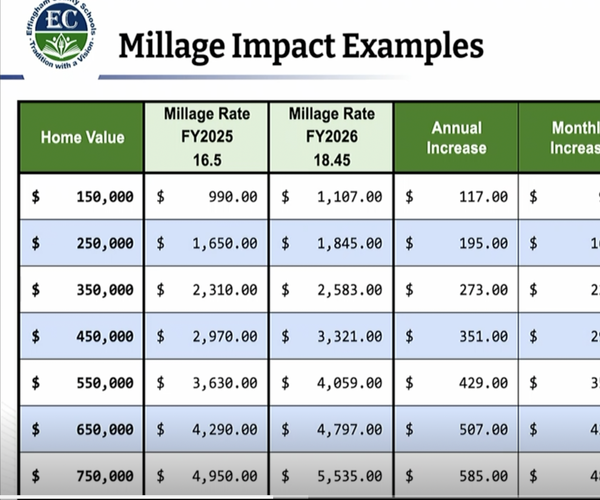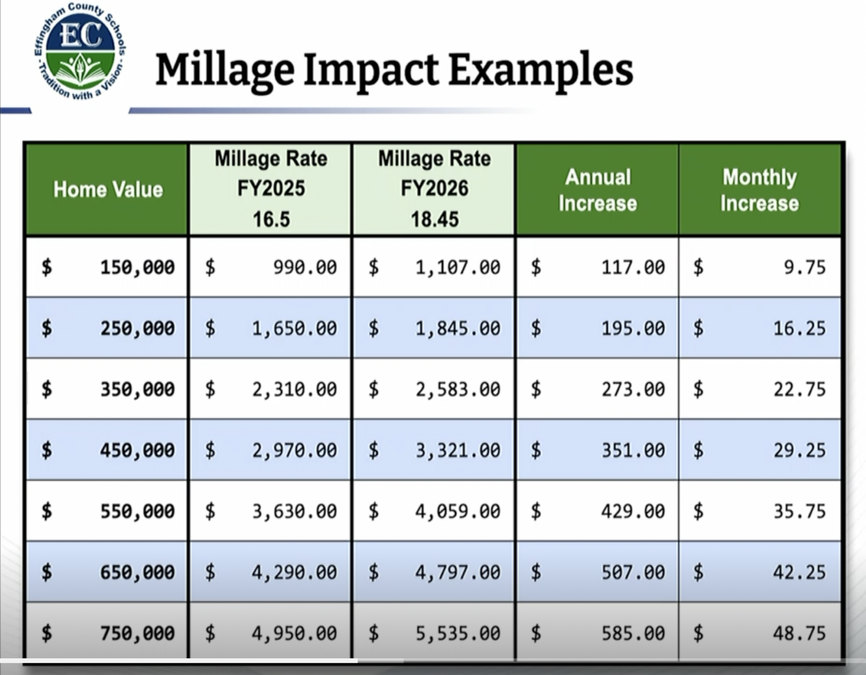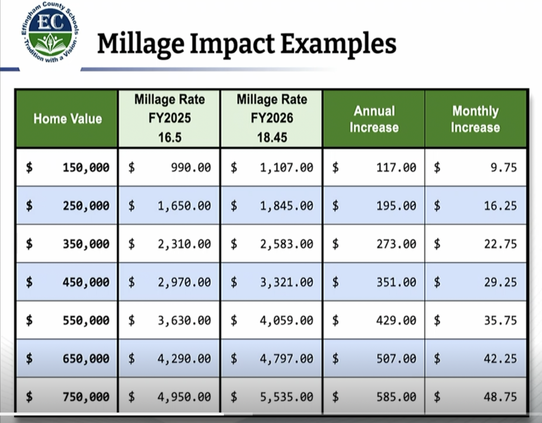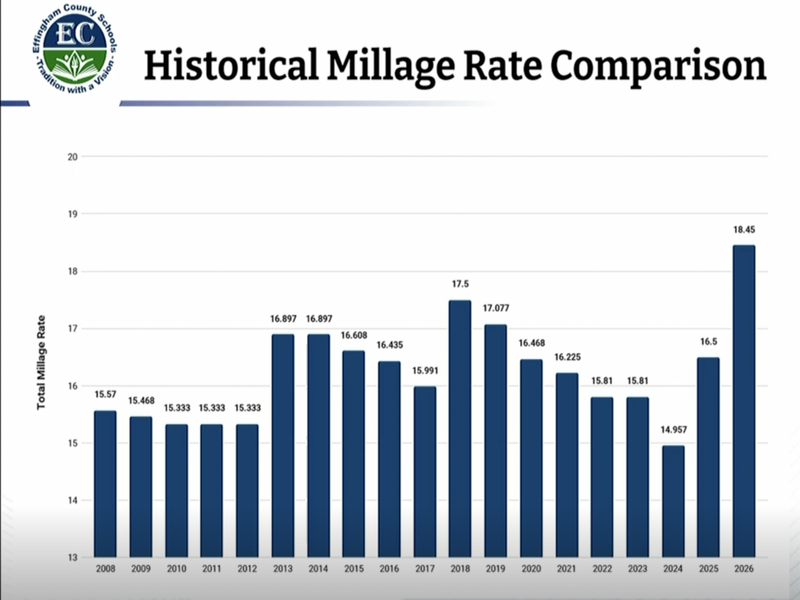Effingham County commissioners still have a series of questions after an auditor presented his report on Keep Effingham Beautiful.
Donald Caines of Caines and Hodges, who performed the county’s audit, told commissioners Tuesday there did not appear to be any past or present living county employee who misappropriated funds.
“What we’re after is getting at the truth and the facts as to what happened with this account and what happened as it pertains to the county’s money that may have gone into this account,” said Chairman Wendall Kessler.
Caines said at least $64,000 was improperly deposited in Keep Effingham Beautiful, and that total could be as much as $70,000.
“I would agree it would appear there were funds diverted into this account that belonged to the county,” he said.
Connie Burns, the late county sanitation director who died suddenly in August 2012, was in charge of Keep Effingham Beautiful, a private non-profit organization, and proceeds from recycling and returned merchandise were being deposited into the agency’s account, according to the findings.
“It was being operated by county employees on county time at a county facility,” Caines said.
According to the findings, the organization took in more than $70,000 from December 2007 until its account was closed in March. When the account was closed, Keep Effingham Beautiful’s balance was $12,817. Since March, all recycling proceeds have been deposited with the county.
“I look at it as we recovered our funds,” said Commissioner Vera Jones.
Keep Effingham Beautiful did not have a county taxpayer ID number, Caines said, and its account was opened Dec. 31, 2007. Its incorporation with the state was active from April 2000-July 2005.
Since it wasn’t a county account, it didn’t fall under the county’s internal controls, he added. Caines said if there were accounts prior to that, they could not find any record of them.
“Generally speaking, we had no way of knowing it was there,” he said of the Keep Effingham Beautiful account, “unless somebody told us.”
The agency was funded with a grant-in-aid agreement, getting $1,000 annually from the county. For that, Keep Effingham Beautiful provided environmental education services. The annual grant originally came from the county’s Department 51, where non-profits and quasi-governmental agencies are funded, and later through the sanitation department under such items as awards for environmental programs.
“If nothing else had happened, if they just received a $1,000 payment, I wouldn’t like that,” Caines said, “because it’s a county employee on county time operating a non-profit. You had an issue from the appearance of a control problem. A lot of things that could go wrong did go wrong.”
In addition to $4,000 from the county, Keep Effingham Beautiful took in more than $39,000 from checks for scrap metal recycling and more than $13,000 in vendor refunds. It also took in $5,648 from Republic Waste, the county’s garbage collection contractor, in recycling rebates.
The vendor refunds, Caines said, should have gone back to the county.
Caines’ findings discovered that of the Keep Effingham Beautiful expenditures, more than $22,000 went to department and retail stores and another nearly $21,000 went to travel and entertainment over a period of 56 months. The account paid such entities as Delta, US Airways, Marriott American Airlines, Big Lots, the Tampa Bay Buccaneers and the Dallas Cowboys.
“There were some unusual-looking disbursements,” Caines said. “That’s all we can say about those. We can assume and speculate.
“Documentation was sketchy,” he added. “Everything we went to look for, there was no documentation for disbursements. Everything, let’s just say, was gone. We were grabbing information from wherever we could find it.”
Caines added that there did not appear to be inappropriate disbursements from Burns’ death until the account was closed seven months later.
Kessler wanted to know how to prevent this in the future.
“It was discovered an individual who was a county employee had been operating this account with no oversight and there were no effective controls over these activities, and these activities were not being reported to the county commission,” Kessler said. “It sounds like if this wasn’t a county account, how do we have control over it?
Commissioner Steve Mason said what the county should inspect is not how the Keep Effingham Beautiful money was spent, since it is a private agency, but how the money got there in the first place.
“I’m concerned how the money got there and how it got diverted,” he said.
The report disclosed a scrap metal company’s controller was instructed by Burns to split the proceeds of these payments, with half going to the county and half directed to Keep Effingham Beautiful. The controller, whose identity is not revealed in the report, said he was told in November 2009 to void 18 checks to the sanitation department between April 2008 and November 2009 and remit $10,400 to Keep Effingham Beautiful.
“I’m not saying anybody did anything intentional,” Caines said. “But if somebody chose to do what happened here on an intentional basis, it’s difficult to stop it.”
Jones said sending a notice to all vendors not to change to where checks are being made payable without authorization from the commissioners could prevent that from happening again.
County finance director Joanna Wright said they determined there was not a contract between the county and Keep Effingham Beautiful and she questioned why the annual check was being issued to the agency. Wright said she did not know of the Keep Effingham Beautiful account until she spoke with Wanda Price, who works in the county sanitation department.
“She said she thought the account was the county’s the entire time,” Jones said of Price.
According to the report, former county administrator David Crawley was informed in May 2009 that there was no agency agreement between the county and Keep Effingham Beautiful. But, the findings stated, Crawley replied that an agreement was not needed because the county had total control over Keep Effingham Beautiful’s funds.
“In fact, there was no control being administered over this account,” according to the findings.
“There was a belief that was a part of the county when in fact it wasn’t,” Caines said.
“What we’re trying to do through this whole thing is who knew what, when did they know it, did they exercise any control, were they involved in any of the money,” Caines said. “We’re not saying anything was done intentionally or improperly.”
Jones said that even after Burns’ death, it appears $10,000 was diverted to the Keep Effingham Beautiful account before it was closed.
“Once anybody at Effingham County had knowledge of that,” she said, “they needed to inform the board of commissioners so we could put a stop to it.”
Caines said the staff person who performed the report has a background in forensics and fraud investigation. He also asked commissioners to email him any questions they have or clarifications they seek.
Kessler also wanted to know what action the commissioners may need to take as a result of Caines’ report and what procedures and controls could be put in place.
“What I’m about is trying to fix this so it doesn’t happen again,” Kessler said.










